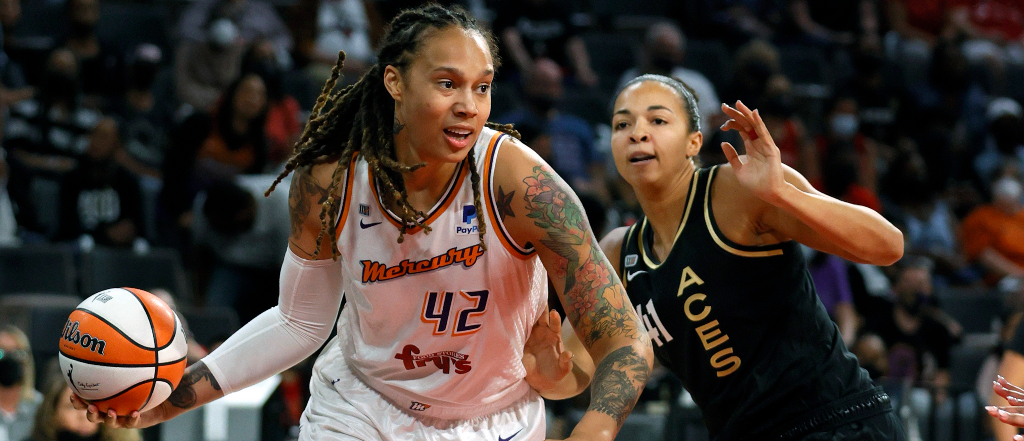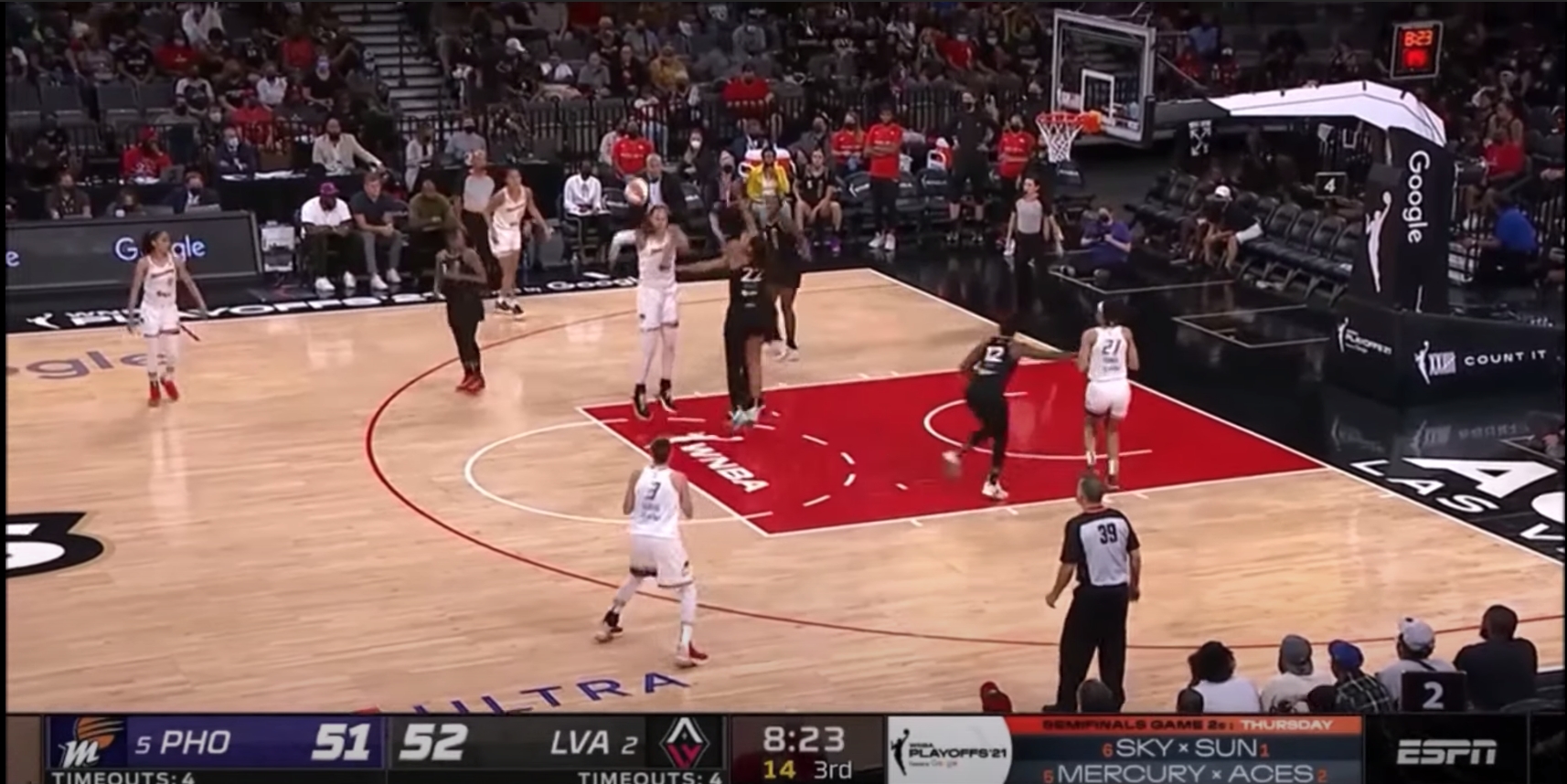
Through four playoff games so far, basketball fans are seeing the best version of Brittney Griner that has ever graced a WNBA court. If she keeps it up, the Phoenix Mercury could upset the 2-seed Las Vegas Aces and punch their ticket to the Finals for the first time since 2014.
The seven-time All-Star is averaging 22 points, 10 rebounds, and 5.3 assists, and two blocks per game on 68 percent shooting from the field. She’s been nothing short of incredible, unlike anything we’ve seen from her since back in 2017, before a gnarly fall caused a bruised knee and a sprained ankle. She was never able to fully recover until last year, when she left the Wubble and had the first extended period of rest of her career.
We shouldn’t be surprised. Griner was Team USA’s fulcrum at the Tokyo Olympics, averaging a team-best 16.5 points per game on an astounding 69 percent from the field. Though Breanna Stewart won MVP of the tournament, it would be easy to make a case for Griner. All she’s done during the WNBA playoffs so far is keep the momentum. Since making a name for herself as a dunking, shot-blocking machine at Baylor, Griner has stood out as a marvel. This fall, she is finally making good on that promise again.
Even in a series in which legendary teammate Diana Taurasi scored her playoff career high, Griner has been the most dominant player on the floor through two games. But her overall greatness and momentum are only part of the reason Griner holds the key to the series.
Griner’s Mercury teammates, to be clear, deserve endless credit for the way they have moved and read the floor when Griner has the ball in the post. Because she generates so much attention and gravity when she’s operating in isolation, Phoenix players know they must take advantage of open space on the floor. Quick decisions from Griner have kept the offense plugging along and helped the Mercury steal a road Game 2.
Here’s an example of Griner feeding Taurasi an easy shot in Game 1 while four Aces defenders have their eyes on the MVP runner-up:

That happens because the energetic Brianna Turner cuts deep into the paint while both Skylar Diggins-Smith and Kia Nurse create space by lifting up beyond the three-point line. As Mike Prada noted on Twitter, the Phoenix coaching staff deserves credit here as well. The organized chaos is clearly designed, as players know the timing and direction of their off-ball movement and have clearly repped it all season.
All of this is important when you consider Phoenix’s opponent, the Aces. Las Vegas is known for playing technically sound basketball and beating teams with their collective size and IQ. Because of Griner’s dominance, the Mercury have been able to reverse that trend. Phoenix has out-rebounded Las Vegas 66-57 through two games, while their field goal percentage is three points higher. Phoenix is scoring nearly 129 points per 100 possessions in the series, a number the Aces just can’t keep up with.
The imbalance on offense isn’t all because the Mercury are dominating, though. Part of the reason Griner’s gravity and play-making have been so important is because it’s allowed Phoenix to bomb away from deep. For how good the Aces are, responding by doing the same is something teams coached by Bill Laimbeer have nearly never done. Through two games, the Mercury have attempted nearly twice the number of threes (57) as Las Vegas (35). Much of that has come from Taurasi, but by having a legit inside-out scoring game and the interior gravity of Griner, Phoenix has been able to squarely win the shooting battle.
The simplest solution would be for Las Vegas to be able to defend Griner with one player, which is of course easier said than done. One reason for optimism, however, is that All-Star center Liz Cambage was able to play more than 24 minutes in Game 2 after fewer than 10 in Game 1 as she recovers from COVID-19.
In plays where Cambage defended Griner on the block, Cambage’s size and length bothered Griner in a way starter Kiah Stokes could not. Simply being able to get a hand in Griner’s face changes a lot.
Of course, not having to send an extra defender helps as well. From a pure geography standpoint, the Aces often end up sending power forward A’ja Wilson as the second defender, leaving Turner, a great cutter, to streak to the basket and cause a domino effect that leaves a shooter open. If Cambage can simply hold her own and contest shots without fouling, the Aces can play a more traditional defense and take fewer risks.
Taurasi’s gaudy 37-point night turned heads on Thursday for good reason, but just about everything the Mercury offense has done has come because of Griner. In order to keep the upset hopes alive, Phoenix will count on Griner to continue to be a step ahead of the defense and use both her mind and body to continue to dominate the Aces.
